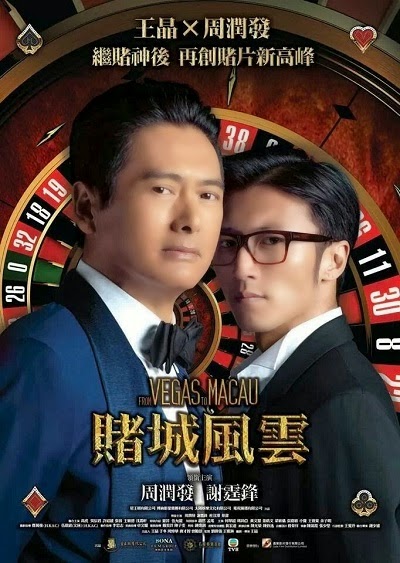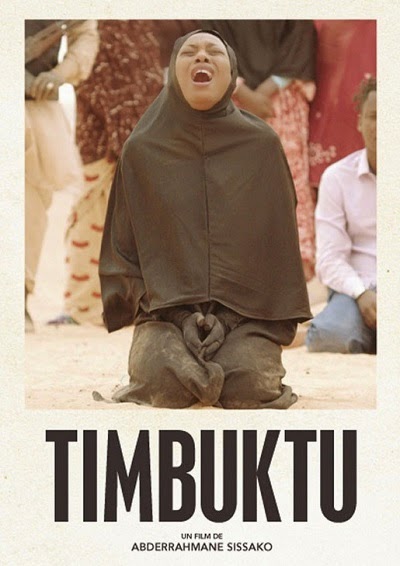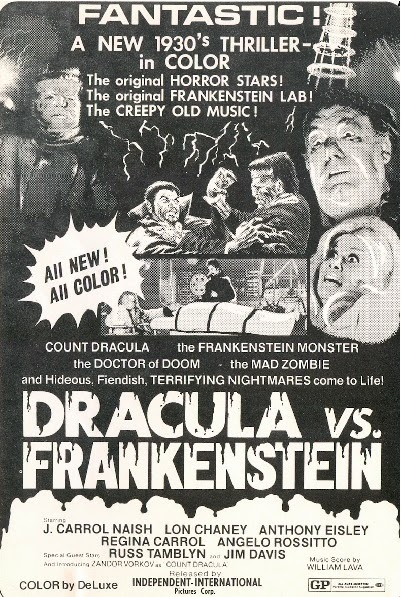Ten Favorite Narrative Features
Boyhood (USA dir. Richard Linklater)
I was tempted to plunk another film in the top spot just to stand out from the crowd, but this really was my fave flick of the year. I'm especially grateful to have seen the "festival cut" with Linklater's dream soundtrack, which included songs from Outkast, Daft Punk, Weezer and others that were sadly M.I.A. from the theatrical release. At that same Castro Theatre screening at this year's SF International Film Festival, I had the added pleasure of watching Linklater be interviewed on-stage by none other than Parker Posey, followed by a post-screening Q&A with the director and daughter/star Lorelei. Finally, I'm compelled to give a loud shout-out to Ethan Hawke, who's gotten zero Awards Season love for what I consider the best performance of his career.
Clouds of Sils Maria (France dir. Olivier Assayas)
After narrowly missing last year's Ten Favorites with his autobiographical Something in the Air, Assayas came through with my number two film of 2014, a funny, whip-smart, deliciously meta treatise on movie actresses starring Juliette Binoche and a staggeringly excellent Kristen Stewart. This All About Eve for the age in which we now live proved a stellar closer for the SF Film Society's French Cinema Now series.
Locke (UK dir. Steven Knight)
Tom Hardy delivers the performance of the year in this gripping portrayal of a construction manager juggling multiple crises via Bluetooth whilst barreling down a UK highway in the dead of night. The film also reps an astounding achievement for sophomore director Steven Knight, who kept things moving at a intense clip and created keen visual interest in the lone setting of a car's interior/exterior.
Eastern Boys (France dir. Robin Campillo)
A gay, middle-aged Parisian gets more than he bargained for after hooking up with a Ukrainian hustler in this stunning discovery from 2014's SFIFF, which in its third act transformed into the most intensely nerve-wracking thriller I'd seen in years. Until now, director Campillo has been best known for co-writing films with Laurent Cantet (The Class) and for his only previous feature as director, the revered 2004 zombie flick, They Came Back.
Moebius (South Korea dir. Kim Ki-duk)
In the first 10 minutes of this outlandish horror show from formalist shock-meister Kim, a woman retaliates against her philandering husband by cutting off their teenage son's penis and eating it. Then shit starts to get really weird. Did I mention there's absolutely no dialogue (but lots of grunting, screaming, moaning and groaning) or that the same actress plays the disparate roles of both wife and mistress? Moebius had a brief NYC theatrical release this summer, but no Bay Area programmer had the balls to touch it. Once again, all-too-frequently (and wrongly) maligned Netflix came to the rescue!
Club Sandwich (Mexcio dir. Fernando Eimbcke)
After a five year hiatus, my favorite Mexican director returned with yet another knowingly heartfelt and hilarious deadpan comedy, this one about a pubescent boy encountering first love while on holiday with his single mother at an off-season beach resort. It was an added thrill to have Sr. Eimbcke on hand at the film's SFIFF screenings.
Birdman (USA dir Alejandro González Iñárritu)
Bursting with bravura scriptwriting, direction, acting, music and camerawork, this was a film so entirely original and kinetic in its conception that it nearly defied description. And Dear God, I'll never take your name in vain again if you'll let Edward Norton beat out J.K. Simmons (Whiplash) for best supporting actor.
Force Majeure (Sweden dir. Ruben Östlund)
In this brilliant, bristling social satire from Sweden, a family man endures the shame brought on by an act of cowardice at an Alpine ski resort (the latter of which supplies this year's most intriguing mise en scene). I've seen six of the nine films shortlisted for this year's Best Foreign Language Film Oscar® and this is by far my favorite (sorry, Ida).
The Dance of Reality (Chile dir. Alejandro Jodorowsky)
Latin America's 85-year-old silver screen surrealist emerged after nearly a quarter century's absence with this autobiographical opus magnum that nearly exploded with cinematic invention. Considered in tandem with the documentary Jodorowsky's Dune, it represented a genuine embarrassment of riches.
Mommy (Canada dir. Xavier Dolan) 25-year-old gay French-Canadian wunderkind Dolan delivered a massive jolt to 2014's Cannes competition with this emotionally super-sized epic about a fiery single mom's love for her sociopathic teenage son. This is the young director's fifth film in as many years and the third to make my annual Top Ten.
* I missed several opportunities to see Jean-Pierre and Luc Dardenne's Two Days, One Night, and am fairly convinced it would have made this list had I seen it. (I'll finally catch the film next weekend at the Palm Springs International Film Festival). Also, for what it's worth, Bruce LaBruce's Gerontophilia and J.C. Chandor's A Most Violent Year came this close to Top Ten inclusion.
Narrative Feature Honorable Mentions
(38 more films that helped make 2014 a damn fine year for movie-watching)
The Amazing Catfish (Mexico dir. Claudia Sainte-Luce)
The Auction (Canada dir. Sébastien Pilote)
Bethlehem (Israel dir. Yuval Adler)
Blue Ruin (USA dir. Jeremy Saulnier)
Calvary (Ireland dir. John Michael McDonagh)
Chef (USA dir. Jon Favreau)
Child's Pose (Romania dir. Calin Peter Netzer)
Chinese Puzzle (France dir. Cédric Klapisch)
The Dune (France dir. Yossi Aviram)
The Easy Way Out (France dir. Brice Cauvin)
An Episode in the Life of an Iron Picker (Bosnia/Herzegovina dir. Danis Tanovic)
Foxcatcher (USA dir. Bennett Miller)
Gerontophilia (Canada dir. Bruce LaBruce)
A Girl Walks Home Alone at Night (USA dir. Ana Lily Amirpour)
God's Slave (Venezuela dir. Joel Novoa)
Gone Girl (USA dir. David Fincher)
The Grand Budapest Hotel (USA dir. Wes Anderson)
Happy Christmas (USA dir. Joe Swanberg)
Harmony Lessons (Kazakhstan, dir. Emir Baigazin)
Holiday (Ecuador dir. Diego Araujo)
In Bloom (Georgia dir. Nana Ekvtimishvili)
Jimmy P. (USA/France dir. Arnaud Desplechin)
Kumiko, the Treasure Hunter (USA dir. David Zellner)
Leviathan (Russia dir. Andrey Zvyagintsev)
Lilting (UK dir. Hong Khaou)
Love at First Fight (France dir. Thomas Cailley)
A Most Violent Year (USA dir. J.C. Chandor)
A Most Wanted Man (UK dir. Anton Corbijn)
Mr. Turner (UK dir. Mike Leigh)
Norte, the End of History (Philippines dir. Lav Diaz)
Omar (Palestine dir. Hany Abu-Assad)
The Reconstruction (Argentina dir. Juan Taratuto)
Salvation Army (France/Morocco dir. Abdellah Taïa)
Stray Dogs (Taiwan dir. Tsai Ming-liang)
Venus in Fur (France dir. Roman Polanski)
Violette (France dir. Martin Provost)
The Way He Looks (Brazil dir. Daniel Ribeiro)
Zero Motivation (Israel dir. Talya Lavie)
Ten Favorite Documentary Features
What Now? Remind Me (Portugal, dir. Joaquim Pinto)
Jodorowsky's Dune (USA dir. Frank Pavich)
Citizenfour (USA dir. Laura Poitras)
The Dog (USA dir. Allison Berg, Frank Keraudren)
Finding Vivian Maier (USA dir. John Maloof, Charlie Siskel)
The Spirit of '45 (UK dir. Ken Loach)
Freedom Summer (USA dir. Stanley Nelson)
Born to Fly: Elizabeth Streb vs. Gravity (USA dir. Catherine Gund)
The Galapagos Affair: Satan Came to Eden (USA dir. Daniel Geller, Dayna Goldfine)
No No: A Documentary (USA dir. Jeff Radice)
Documentary Feature Honorable Mentions
The Case Against 8 (USA dir. Ben Cotner, Ryan White)
Compared to What: The Improbable Journey of Barney Frank (USA dir. Sheila Canavan, Michael Chandler)
Last Days in Viet Nam (USA dir. Rory Kennedy)
Manakamana (USA/Nepal dir. Stephanie Spray, Pacho Velez)
The Missing Picture (Cambodia dir. Rithy Panh)
Natan (Ireland/UK/USA/France dir. Paul Duane, David Cairns)
The Salt of the Earth (France/Brazil dir. Juliano Ribeiro Salgado, Wim Wenders)
School of Babel (France dir. Julie Bertuccelli)
The Square (Egypt/USA dir. Jehane Noujaim)
Violette Leduc: In Pursuit of Love (France dir. Esther Hoffenberg)
Special Citations
●
American indies don't always have to suck: Joe Swanberg's Happy Christmas, Jeremy Saulnier's Blue Ruin, Gillian Robespierre's Obvious Child and David Zellner's Kumiko, the Treasure Hunter
● Funniest line of dialogue: "I don't want to live in a world of dressed-up dogs!" from Jodorowsky's The Dance of Reality
● 2014's Sexiest Man Alive: Edward Snowden in Citizenfour
● Cruel and unusual punishment: The final two static shots, lasting 14 and seven minutes respectively, in Tsai Ming-liang's Stray Dogs
● Excedrin headaches #297 and #410: the "roving right eye" segments of Godard's 3-D Goodbye to Language and the screeching teenage girls in Lucas Moodysson's We Are the Best!
● Best villain: Mae Paner as Magda the heartless moneylender who gets hacked to death in Lav Diaz' Norte, the End of History
● Best dance sequence: Lika Babluani's hypnotic wedding dance in Nana Ekvtimishvili's Georgian coming-of-ager In Bloom
● Best insect torture devices: Emir Baigazin's Harmony Lessons
● The most fun I had at the movies in 2014: the SFIFF screening of Chinese Puzzle with director Cédric Klapisch and sexy French superstar Romain Duris in person, presenting a hilarious film that was loads better than any three-quel had a right to be.
● She's everywhere! She's everywhere!: Isabelle Huppert in Serge Bozon's Tip Top, Niels Arden Oplev's Dead Man Down, Catherine Breillat's Abuse of Weakness, Ned Benson's The Disappearance of Eleanor Rigby and Marc Fitousi's Paris Follies
● Laughed myself sick: the office chair airbag scene from Nicolas Stoller's Neighbors
● Movie ending that made me pump my fist in the air and scream, "Fuck, yeah!": Hany Abu-Assad's Omar
● Sexiest Soviet filmmaker turned actor: Vsevolod Pudovkin in the SF Silent Film Festival's revival of Lev Kuleshov's 1924 Extraordinary Adventures of Mr. West in the Land of the Bolsheviks
● Best Revival: the SF Silent Film Festival's mind-blowing 4K digital restoration of Robert Wiene's The Cabinet of Dr. Caligari
● Worst Revival: the shitty 4K digital restoration of Richard Lester's 1964 A Hard Day's Night
● Most ludicrous depiction of my hometown of Trenton, NJ: Michel Gast's 1959 I Spit on Your Graves, shown as part of the Roxie's "The French Had a Name For It" film noir series
● Best use of a pop music classic: David Bowie's "Space Oddity" in Fruit Chan's dystopian Hong Kong nightmare, The Midnight After
● Best films by established French auteurs that popped up on Netflix without ever having been screened in the Bay Area: Bruno Dumont's Camille Claudel 1915 and Arnaud Desplechin's Jimmy P.
● You had to see it to believe it: Ex-soccer star Eric Cantona crawling around a cage dressed only in bulging white briefs while getting whipped by a snarling, white fur-clad Béatrice Dalle in Yann Gonzalez' You and the Night
● Hated it!: Damien Chazelle's Whiplash
● Didn't really get it: Jonathan Glazer's Under the Skin



























